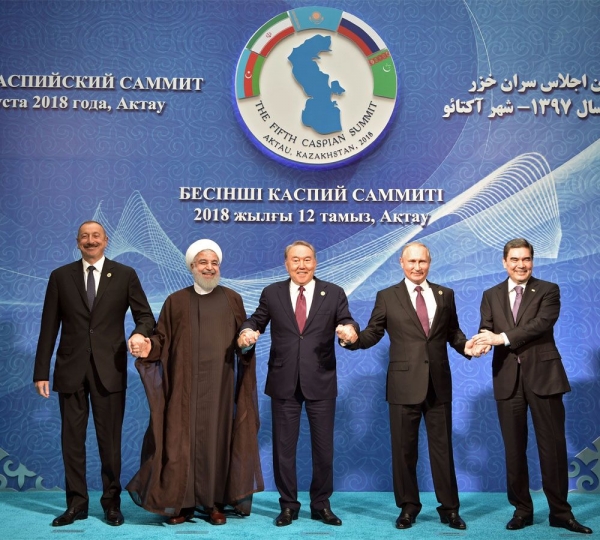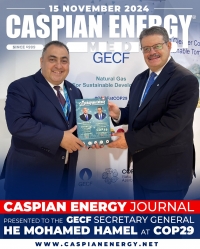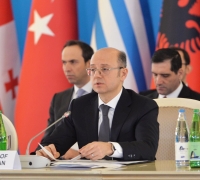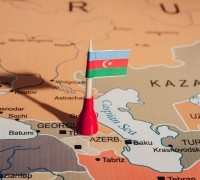Economic aspect of settlement of the Caspian status (signing of the Convention on the legal status of the Caspian Sea by Presidents of 5 Caspian countries in Aktau on August 12) speaks for itself. The Caspian Sea comprises five countries with a total population of some 280 million. It is almost as many as in the MENA region (Middle East and North African states), about 300 million which is comparable with the market of the United States.
Geostrategic importance of the Caspian Sea lies in its being a central link between the rapidly growing economies of India and China, the region of MENA and the EU, the largest market in the world.
Today, when the WTO’s trade relations system, established after the Second World War, is being reviewed against the background of unstable oil market which has lost the trust of investors, the investment market is also “on the ropes” as the surplus of investments by the developed markets on the one hand and the lack of stability in the developing markets lead to a growing leverage of missed investment opportunities, right up to a new crisis of the world banking system. In addition, investment uncertainty of relations between Great Britain and EU after Brexit (March 29, 2019), as well as a shift to a “fair” bilateral trade system, collapse of trans-Atlantic and Pacific trade blocs (cessation of negotiations on TTIP –USA and EU and the collapse of TPP- 12 states), all this causes an investment uncertainty in the developed markets and provides new chances for business. Therefore, the Caspian together with its human capital, biological, energy, geo-economic and transport-tourism potential may in the very near future become one of the most liquid investment markets.
A long-awaited convention on the Caspian status signed on the 12th of August of this year in Kazakhstan will contribute to it. In spite of the fact that the convention does not fully settle issues of cross-border fields, Presidents of the five Caspian states positively assessed the signed document, noting that it would be a good base for further development of economic cooperation in the Caspian region. “Signing of the Convention of the Caspian status is a historical event. Azerbaijan worked in a constructive way and made its contribution. Caspian had been the Sea of stability and security even before the signing of the Convention. The Convention is determining the security of the Caspian Sea. Azerbaijan is contributing to the ecological issue, to the matter of environmental safety when performing oil-gas operations. This document will be important for the future of our countries”, President of Azerbaijan Ilham Aliyev said in his statement after the document had been signed in Aktau on August 12.
“The Convention is some kind of the constitution of the Caspian Sea. It is called upon to settle the full range of issues associated with the rights and obligations of coastal countries, and also become guarantor of safety, stability and prosperity of the region in general”, President of Kazakhstan Nursultan Nazarbayev said in his statement after the signing of the document in Aktau.
President of Turkmenistan Gurbanguly Berdimuhammedov offered to launch a mechanism of five-sided regular consultations under the aegis of the Foreign Ministers.
President of Iran Hassan Rouhani noted that the convention on the legal status of the Caspian Sea does not establish final dividing lines in the sea, which is why it is necessary to continue negotiations on this issue. “Negotiations, especially on division and determination of straight baselines, should be continued in order to reach agreements in respective areas in future by means of mutual understanding and constructive cooperation”, he said. According to H. Rouhani, “final adoption of the convention depends on legal procedures of ratification in the Caspian countries”.
“This event will certainly go down in history as the event which took place in Kazakhstan. It is a big event to which we headed for two decades: we were disputing a lot, searching solutions, and finally, we found it. It will certainly contribute to the development of our cooperation in the Caspian region”, President of Russia Vladimir Putin noted.
Thus, the settlement of the Caspian Status will likely stimulate creation of new mechanisms of establishment and development of economic relations, which depends on the level of development of the private sector in the Caspian countries, level of protection of economies from situations in the world markets, creation of the favorable investment background for attraction of new strategic investors and innovative technologies, favorable customs and tax procedures inside each state, and finally, the wish to follow the rules of free circulation of capitals and goods similar to the market of the EU. Conditions for creation and maintenance of new platforms for the business dialogue are also important. Implementation of new transport projects, infrastructure and the tariff policy reform shall contribute to the creation of competitive free local markets, free trade zones, international certification of products quality and mechanism of immunity of investments on the legislative level. In this case, the convention will certainly promote a more dynamic turnover of goods both between all 5 countries and the three global segments of the world market – EU, MENA, East and Central Asian markets.










